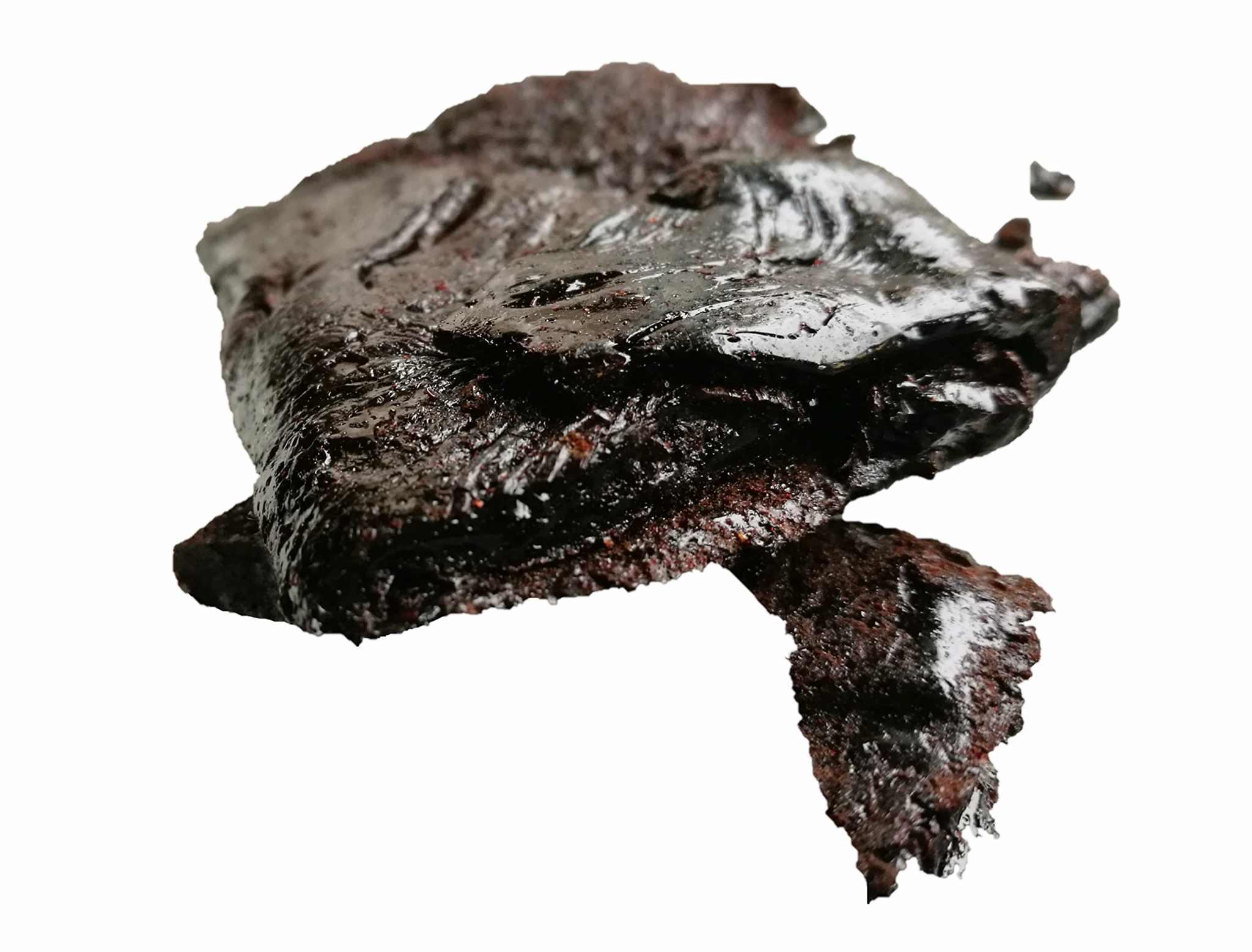Wild Lettuce (Lactuca Virosa) also known as opium lettuce.
*Wild Lettuce (Lactuca virosa): Unveiling the Secrets of Nature's Calming Herb*
Introduction:
Wild Lettuce, scientifically known as Lactuca virosa, is a lesser-known but remarkable plant with a history deeply rooted in herbal medicine. Often referred to as "opium lettuce" due to its mild sedative properties, this unassuming plant has a rich history of therapeutic use, from ancient civilizations to contemporary herbalists. In this article, we'll explore the various facets of Wild Lettuce, including its botany, traditional uses, potential health benefits, and precautions for consumption.
*Botanical Profile:*
Wild Lettuce is a biennial plant belonging to the Asteraceae family, which includes sunflowers and daisies. It typically grows up to 6 feet in height and is characterized by its deeply lobed, toothed leaves that somewhat resemble those of common lettuce. When it flowers, it produces small, yellow blooms that add to its natural charm.
*Historical Significance:*
The use of Wild Lettuce dates back to ancient civilizations such as the Egyptians and Greeks, who recognized its soothing properties. It was traditionally used to alleviate pain, anxiety, and insomnia. The milky latex extracted from the plant's stem was employed for its therapeutic effects.
*Traditional Uses:*
1. *Pain Relief:
* Wild Lettuce was traditionally used as a natural painkiller. It contains compounds like lactucopicrin and lactucin, which have mild analgesic properties and can be used for headaches, muscle pain, and other minor discomforts.
2. *Sedative Properties:*
The herb is known for its gentle sedative effects, making it valuable for promoting relaxation and improving sleep quality. It has been used to ease insomnia and anxiety.
3. *Respiratory Support:*
Wild Lettuce was historically used to alleviate respiratory issues like coughs and asthma due to its mild expectorant properties.
*Modern Applications:*
While not as widely used as it once was, Wild Lettuce still has its place in herbal medicine and holistic health practices. It's often incorporated into herbal teas, tinctures, and supplements for its potential calming effects.
*Precautions:*
- Wild Lettuce is generally considered safe when used in moderate amounts. However, it may cause mild side effects like dizziness or allergic reactions in some individuals. - Pregnant and nursing women should consult a healthcare professional before using Wild Lettuce. - Individuals taking medications or with pre-existing health conditions should also seek medical advice before using this herb.
*Conclusion:*
Wild Lettuce, with its ancient roots in herbal medicine, continues to offer a natural approach to pain relief and relaxation. While its effectiveness varies from person to person, it remains a fascinating herb worth exploring for those interested in holistic remedies. Always consult a healthcare professional or herbalist before incorporating Wild Lettuce into your wellness routine to ensure it's safe and suitable for your individual needs.
*Cultivation and Habitat:*
Wild Lettuce is native to parts of Europe and Asia, where it can be found growing in the wild. It prefers well-drained soils and is often found in meadows, along roadsides, and in disturbed areas. Cultivating Wild Lettuce is possible in home gardens, provided it's grown in suitable conditions.
*Chemical Constituents:*
This herb contains a range of bioactive compounds, including lactucin, lactucopicrin, and traces of latex. Lactucopicrin, in particular, is responsible for its mild sedative properties. These compounds are typically concentrated in the plant's milky latex.
*Harvesting and Preparation:*
Wild Lettuce is typically harvested in the flowering stage, which is when its medicinal compounds are most potent. The latex can be collected from the stem by making small incisions. However, it's essential to do this with care to avoid damaging the plant. The latex can then be dried and used in herbal preparations.
*Traditional Cultural Uses:*
Beyond its medicinal applications, Wild Lettuce also has cultural significance in various regions. In some traditions, it was used in rituals to induce vivid dreams or altered states of consciousness, though this usage is less common today.
*Contemporary Herbal Remedies:*
Modern herbalists and natural health enthusiasts continue to explore Wild Lettuce for its potential therapeutic benefits. It's sometimes included in herbal blends designed to promote relaxation, ease stress, or enhance sleep. However, it's crucial to use it responsibly and under the guidance of a knowledgeable herbalist.
*Legal Status:*
Wild Lettuce is generally legal to cultivate and use in many parts of the world. However, regulations surrounding its sale and use can vary, so it's essential to check local laws and regulations before obtaining or selling Wild Lettuce or related products.
*Final Thoughts:*
Wild Lettuce's historical significance in herbal medicine, coupled with its potential health benefits, make it a subject of continued interest among herbalists and those seeking natural remedies. As with any herbal supplement or remedy, it's advisable to consult with a healthcare professional or herbal expert to determine the most appropriate and safe use for your specific needs. Feel free to incorporate this additional information into your website content to provide a comprehensive resource for your readers. If you have any specific questions or need more details on a particular aspect, please let me know!

Wild Lettuce (Lactuca Virosa) resin extract
Lactuca virosa resin extract, often referred to as Wild Lettuce resin extract, is a concentrated preparation derived from the milky latex or sap of the Lactuca virosa plant. This extract is known for its potential therapeutic properties and has been used historically for various medicinal purposes. Here's some information about it:
*Extraction Process:*
The resin extract is obtained from the latex or sap of the Lactuca virosa plant, which is found in the stem and leaves of the plant. The latex is collected by making small incisions in the plant, allowing the milky substance to ooze out. This latex is then processed to create a concentrated resin extract.
*Chemical Composition:*
The resin extract contains a variety of chemical compounds, including lactucin and lactucopicrin. These compounds are believed to be responsible for the mild sedative and analgesic (pain-relieving) effects associated with Wild Lettuce.
*Potential Uses:*
Wild Lettuce resin extract has been traditionally used for several purposes, including:
1. *Pain Relief:*
The extract is valued for its mild analgesic properties and has been used to alleviate various types of pain, including headaches, muscle aches, and joint discomfort.
2. *Sedative Effects:*
Due to its calming properties, Wild Lettuce resin extract has been used to promote relaxation and improve sleep quality. It may be helpful for individuals dealing with insomnia or anxiety.
3. *Respiratory Support:*
Some historical uses include using the extract to relieve respiratory conditions, such as coughs and bronchitis, thanks to its mild expectorant properties.
*Dosage and Precautions:*
The dosage of Wild Lettuce resin extract can vary depending on the product and its intended use. It's crucial to follow the manufacturer's instructions or consult with a healthcare professional or herbalist for guidance on proper dosing. As with any herbal remedy, there are precautions to consider:
- *Allergic Reactions:*
Some individuals may be allergic to components in Wild Lettuce extract. It's advisable to perform a patch test or start with a low dose to assess tolerance.
- *Pregnancy and Medications:*
Pregnant or nursing individuals and those taking medications should consult a healthcare provider before using this extract, as it may interact with certain drugs or have adverse effects during pregnancy.
*Legal Status:*
The legal status of Wild Lettuce resin extract can vary by region. In some places, it may be sold as a dietary supplement, while in others, it could be subject to restrictions. Always check local regulations before obtaining or using such products.
*Conclusion:*
Wild Lettuce resin extract is a concentrated herbal preparation with a history of traditional use for pain relief, relaxation, and respiratory support. While it can offer potential benefits, it's essential to use it responsibly, follow recommended dosages, and consider individual health factors before incorporating it into your wellness routine. For specific product recommendations or detailed guidance on its use, consulting a qualified herbalist or healthcare professional is advisable.
Wild Lettuce (Lactuca virosa) as a dietary supplement is not FDA-approved in the United States. The FDA does not approve specific herbs or dietary supplements in the same way it approves pharmaceutical drugs. Instead, dietary supplements are regulated under the Dietary Supplement Health and Education Act (DSHEA) of 1994. Under DSHEA, dietary supplement manufacturers are responsible for ensuring the safety of their products and providing accurate labeling and claims. However, the FDA does have regulatory authority over dietary supplements and monitors them for compliance with safety and labeling regulations. They can take action against products that are found to be unsafe or making false claims. So, while you can find Wild Lettuce and related products on the market, they are not FDA-approved in the sense that pharmaceutical drugs are. It's important for consumers to exercise caution, do thorough research, and consult with a healthcare professional before using any herbal supplements, including Wild Lettuce, to ensure their safety and appropriateness for individual health needs.
*Disclaimer: Information for Guidance Only*
The information provided on this website is intended for informational and guidance purposes only. While we strive to provide accurate and up-to-date information, the content presented here should not be considered as professional advice or a substitute for professional guidance.
*Accuracy of Information:*
We make every effort to ensure the accuracy and reliability of the information presented on this website. However, we do not make any warranties or guarantees regarding the completeness, accuracy, or reliability of the content. Information may change over time, and we recommend verifying any critical information independently.
*Professional Advice:*
Any information, recommendations, or guidance offered on this website should not be construed as professional advice. It is essential to consult with qualified professionals or experts in the relevant field for personalized advice or assistance related to specific matters.
*Individual Responsibility:*
Visitors to this website are responsible for their actions and decisions based on the information provided. We shall not be held liable for any consequences resulting from reliance on the content presented here.
*External Links:*
This website may contain links to external websites or resources. We do not endorse or take responsibility for the content, accuracy, or policies of these external sources. Visitors should use their discretion when accessing external links.
*Changes to Disclaimer:*
We reserve the right to modify or update this disclaimer at any time without prior notice. It is the responsibility of website visitors to review the disclaimer periodically for any changes.
*Acceptance of Terms:*
By using this website, you acknowledge that you have read and understood this disclaimer and agree to its terms and conditions. If you have any questions or concerns regarding this disclaimer or the information presented on this website, please contact us for clarification. --- Please note that while this disclaimer provides a general template, it's advisable to consult with legal professionals or experts to ensure it complies with any specific legal requirements or regulations applicable to your website and its content.


